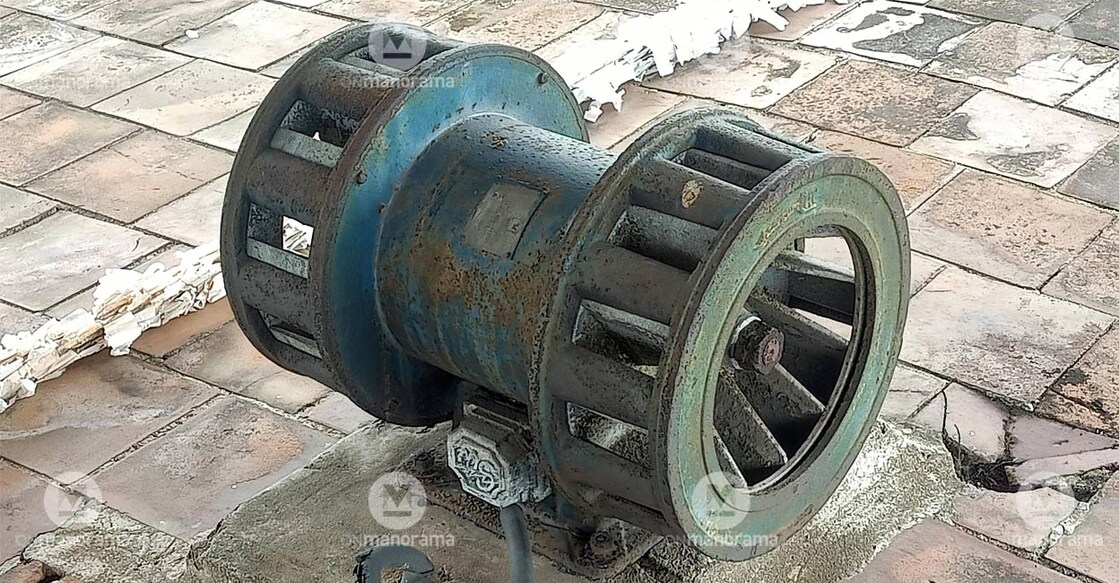British-made Aluva municipal siren of Indo-Pak wartime muted, officials get an earful

Mail This Article
For decades, Aluva residents had become attuned to the piercing blare of a British-made siren installed during the 1965 Indo-Pak War. Now it has gone silent following the direction of the District Collector, and the order has caused a din.
The municipal siren sounded five times a day without fail. The district administration ordered the suspension of the siren's working, citing noise pollution.
The decision came after Advocate Jacob Mathew, a native of Kangarappady, filed a complaint alleging the siren exceeded permissible noise levels. Based on subsequent inspections, the District Pollution Control Board reported that the siren reached 95.5 dBA, significantly above the 65 dBA limit prescribed for industrial zones. The ambient sound level without the siren was measured at 77.4 dBA. A hearing was also held at the Collectorate on June 11, attended by the Environment Engineer, PCB, and the Secretary of Aluva Municipality.
Acting on the findings, the Collector issued an order on June 30 under the Noise Pollution (Regulation and Control) Rules, 2000, mandating the immediate suspension of the siren. The move has sparked widespread protests from across the political, social, and cultural spectrum in Aluva. People argue the Collector acted in haste, without exploring alternatives such as reducing the siren’s volume or consulting the municipal leadership.
Imported from Britain during the 1965 Indo-Pak war, the siren was installed at the old municipal office, near the Aluva palace, to serve as an emergency alert system. Though its original purpose was civil defence, it soon became part of the town’s rhythm, sounding daily at 5 am, 8 am, 1 pm, 5 pm, and 8 pm. Since then the equipment has never required repairs and has never failed to sound.
After the municipal office moved to a new building at Periyar Nagar in 1974, the siren was relocated to the top of its fourth floor. Its reach extended beyond Aluva town, covering the panchayats Kadungalloor, Choornikkara, Keezhmad, and even Nedumbassery. “It became a part of the lives of common people—street vendors, shopkeepers, and especially senior citizens. Many don’t look at their watches; they listen for the siren to plan their day,” said George V P, former vice-chairman of the Aluva Municipality.

“Instead of stopping it completely, the volume could have been adjusted. There were sirens associated with textile industries earlier, nearby. But none of them are active currently. Now, the last active siren in the region has gone silent. The siren also proved valuable during emergencies, including the devastating 2018 Kerala floods. With just one sound, especially at an odd hour, people knew something was wrong. It made them alert,” George added.
M N Sathyadevan, a former municipal staffer who retired as GCDA secretary in 1995, vividly remembers the siren’s installation. “It was set up in coordination with the Civil Defence Committee during the war. A private company brought the equipment on tender following a meeting convened at the Collectorate. It was then placed on an iron stand," he said. The device resembles a water pump, featuring a manual switch that activates the siren for approximately five seconds. “Even the municipal chairman wasn’t consulted directly before stopping the siren. The action affects many, from office-goers to traders. Such a long-standing public signal shouldn't be shut down in such haste,” Sathyadevan added.
Municipal Chairman M O John, currently in Haryana for an official meeting, said the siren's utility during emergencies cannot be overlooked. “Once I return to Aluva, we’ll examine the issue and take appropriate steps. If legal, that too,” he stated.
Meanwhile, the Deputy Collector for Disaster Management, K Manoj, said the decision was solely based on the PCB's report and the public hearing. “We’ve not received any counter-applications yet. If we do, we will review them and take appropriate action,” he assured. Meanwhile, local residents, youth organisations, and residential associations are preparing to challenge the decision. “If needed, we will take the legal route,” said George.


